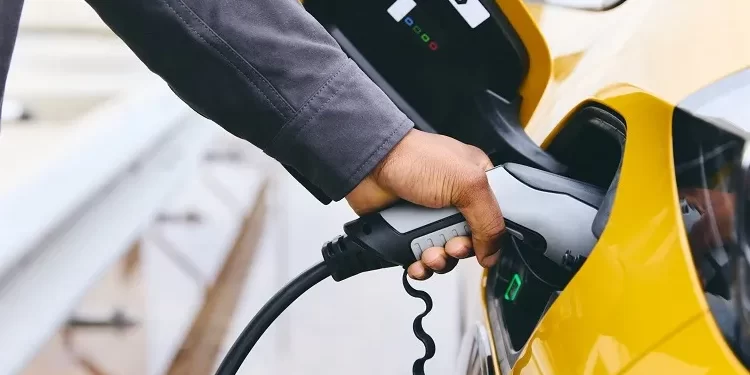
Some 31 million electrical autos are anticipated to hit the street by 2030. Eating places and retail operations may benefit from that site visitors, particularly in the event that they set up EV chargers at their areas. Specialists say the automobile homeowners would seemingly go to the shops whereas their automobiles recharge.
The Biden Administration earmarked $7.5 billion for putting in chargers in its 2021 infrastructure laws to develop availability of EV chargers throughout the U.S. The federal government, by private and non-private partnerships, has set a near-term objective of putting in 100,000 chargers. In trade for the investments, they’re providing tax incentives and credit to corporations who purchase electrical autos or set up charging stations.
The objective: cut back the variety of gas-powered autos on the street to lower than half of all automobiles offered within the U.S. throughout the subsequent six to seven years.
Over the following 5 years, the Division of Transportation is disbursing $2.5 billion, with $350 million going towards neighborhood fueling and charging grants, and one other $350 million to different gasoline hall grants. Further funds are additionally obtainable to supply states with instruments to construct the infrastructure.
Restaurant corporations, similar to Starbucks and Subway, have already dedicated to constructing EV chargers at some areas across the nation, however for smaller and unbiased operators the expense is simply too expensive. To fight that, the federal government is providing the rebates and tax credit to offset the prices.
“There’ll be much more EVs on the street, particularly within the subsequent 10 years,” says Steve Douglas, the Alliance for Automotive Innovation’s vp of Power and Setting. “It’ll be a transition and, initially, many of the charging will most likely happen at residence, besides when touring. Nonetheless, when vacationers do cease to cost their automobiles, even when it is quick, it’ll nonetheless take round 30 to 45 minutes so likelihood is good they’ll cease at eating places with EV chargers and have lunch on the similar time, which ought to positively influence gross sales.”
For the uninitiated, EV chargers can be found at three completely different ranges. Right here’s a fast take a look at each.
- Degree 1: This model actually permits you to plug your car into an everyday 120-volt outlet (the identical type you’d use for, say, a cellphone charger or lamp). The caveat? This degree of charging is sluggish—between 40 and 50 hours if charging from empty to full.
- Degree 2: This model permits charging from a 220-volt outlet (the identical type that heavy-duty home equipment use, similar to washers). A full cost from empty takes between 4 and 10 hours. Public Degree 2 charging stations are commonest at areas the place drivers are inclined to park, similar to workplaces or industrial parking tons.
- Degree 3: This model is the quickest methodology of charging an EV. Often known as DCFC, or direct present quick chargers, they’ll supply a full cost in as little as 20 minutes.
Restaurant operators putting in the chargers are eligible to qualify for the next federal credit and grants, notes Matthew Stephens-Wealthy, director of Technical Companies for the Electrification Coalition, a nonprofit facilitating the widespread adoption of EVs.
Stephens-Wealthy says anybody planning to pursue particular grants, credit, or rebates ought to pay attention to all deadlines, crucial information, or different necessities wanted to obtain the funds.
“Grant purposes and tax credit can take as much as a 12 months to submit and obtain,” he says, and “set up of the charging stations can take six to 12 months relying on dimension and scale of the station’s web site design. For Degree 2 EV chargers, the fee usually averages between $10,000 and $17,000 every. DCFC or Degree 3 (essentially the most highly effective and quickest) chargers, typically price round $100,000 every. The funds may contribute a good portion of financing towards the set up.”
He additional advises that “when submitting for the federal tax credit, examine towards your respective tax legal responsibility. Your tax accountant could possibly be an ideal useful resource in guaranteeing you’re in a position to correctly file for and declare the credit.”
Requested what operators ought to take into consideration earlier than deciding to put in EV chargers, Stephens-Wealthy affords these two essential ideas:
- Attain out to your utility supplier for info
- Analysis all funding alternatives obtainable to offset prices
Learn extra: Restaurants in driver’s seat as EVs power up in popularity







